29 start with D start with D

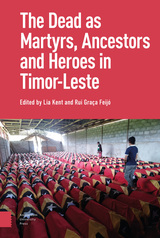
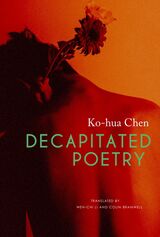
Ko-hua Chen’s Decapitated Poetry was the first explicitly queer book of poems published in Taiwan and remains a foundational work in Taiwanese poetry. Decades after it first appeared in 1995, this collection retains the capacity to shock, appall, and jolt readers into recognizing homosexuality as its own specific category of being. Behind Chen’s depictions of the disjunctive realities of queer erotic life, a formidable and uncompromising poetic intelligence can be seen at play. Alongside the erotic, satirical offerings from Decapitated Poetry, this volume includes selections from Chen’s remarkable sci-fi sequences that offer further transcorporeal meditations on forbidden queer love. Excoriating, heretical, tender, and always alive to the transgressive potential of language, this exhilarating volume from Seagull’s Pride List is the perfect introduction to one of Taiwanese poetry’s most daring voices.
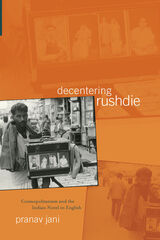
Interrogating current theories of cosmopolitanism, nationalism, and aesthetics in Postcolonial Studies, Decentering Rushdie offers a new perspective on the Indian novel in English. Since Salman Rushdie’s Midnight’s Children won the Booker Prize in 1981, its postmodern style and postnational politics have dominated discussions of postcolonial literature. As a result, the rich variety of narrative forms and perspectives on the nation that constitute the field have been obscured, if not erased altogether.


In this study of desire in Late Imperial China, Martin W. Huang argues that the development of traditional Chinese fiction as a narrative genre was closely related to changes in conceptions of the fundamental nature of desire. He further suggests that the rise of vernacular fiction during the late Ming dynasty should be studied in the context of contemporary debates on desire, along with the new and complex views that emerged from those debates.
Desire and Fictional Narrative in Late Imperial China shows that the obsession of authors with individual desire is an essential quality that defines traditional Chinese fiction as a narrative genre. Thus the maturation of the genre can best be appreciated in terms of its increasingly sophisticated exploration of the phenomenon of desire.

Historians have long been perplexed by the complete disappearance of the medieval Chinese aristocracy by the tenth century—the “great clans” that had dominated China for centuries. In this book, Nicolas Tackett resolves the enigma of their disappearance, using new, digital methodologies to analyze a dazzling array of sources.
Tackett systematically mines thousands of funerary biographies excavated in recent decades—most of them never before examined by scholars—while taking full advantage of the explanatory power of Geographic Information System (GIS) methods and social network analysis. Tackett supplements these analyses with extensive anecdotes culled from epitaphs, prose literature, and poetry, bringing to life women and men who lived a millennium in the past. The Destruction of the Medieval Chinese Aristocracy demonstrates that the great Tang aristocratic families adapted to the social, economic, and institutional transformations of the seventh and eighth centuries far more successfully than previously believed. Their political influence collapsed only after a large number were killed during three decades of extreme violence following Huang Chao’s sack of the capital cities in 880 CE.

In Detective Fiction and the Rise of the Japanese Novel, Satoru Saito sheds light on the deep structural and conceptual similarities between detective fiction and the novel in prewar Japan. Arguing that the interactions between the two genres were not marginal occurrences but instead critical moments of literary engagement, Saito demonstrates how detective fiction provided Japanese authors with the necessary frameworks through which to examine and critique the nature and implications of Japan’s literary formations and its modernizing society.
Through a series of close readings of literary texts by canonical writers of Japanese literature and detective fiction, including Tsubouchi Shoyo, Natsume Soseki, Shimazaki Toson, Sato Haruo, Kuroiwa Ruiko, and Edogawa Ranpo, Saito explores how the detective story functioned to mediate the tenuous relationships between literature and society as well as between subject and authority that made literary texts significant as political acts. By foregrounding the often implicit and contradictory strategies of literary texts—choice of narrative forms, symbolic mappings, and intertextual evocations among others—this study examines in detail the intricate interactions between detective fiction and the novel that shaped the development of modern Japanese literature.
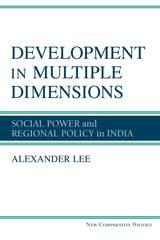
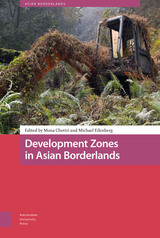
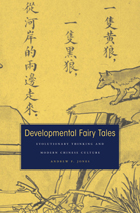
In 1992 Deng Xiaoping famously declared, “Development is the only hard imperative.” What ensued was the transformation of China from a socialist state to a capitalist market economy. The spirit of development has since become the prevailing creed of the People’s Republic, helping to bring about unprecedented modern prosperity, but also creating new forms of poverty, staggering social upheaval, physical dislocation, and environmental destruction.
In Developmental Fairy Tales, Andrew F. Jones asserts that the groundwork for this recent transformation was laid in the late nineteenth century, with the translation of the evolutionary works of Lamarck, Darwin, and Spencer into Chinese letters. He traces the ways that the evolutionary narrative itself evolved into a form of vernacular knowledge which dissolved the boundaries between beast and man and reframed childhood development as a recapitulation of civilizational ascent, through which a beleaguered China might struggle for existence and claim a place in the modern world-system.
This narrative left an indelible imprint on China’s literature and popular media, from children’s primers to print culture, from fairy tales to filmmaking. Jones’s analysis offers an innovative and interdisciplinary angle of vision on China’s cultural evolution. He focuses especially on China’s foremost modern writer and public intellectual, Lu Xun, in whose work the fierce contradictions of his generation’s developmentalist aspirations became the stuff of pedagogical parable. Developmental Fairy Tales revises our understanding of literature’s role in the making of modern China by revising our understanding of developmentalism’s role in modern Chinese literature.
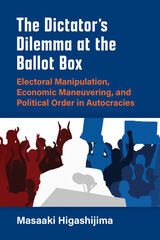
Contrary to our stereotypical views, dictators often introduce elections in which they refrain from employing blatant electoral fraud. Why do electoral reforms happen in autocracies? Do these elections destabilize autocratic rule? The Dictator’s Dilemma at the Ballot Box argues that strong autocrats who can garner popular support become less dependent on coercive electioneering strategies. When autocrats fail to design elections properly, elections backfire in the form of coups, protests, and the opposition’s stunning election victories. The book’s theoretical implications are tested on a battery of cross-national analyses with newly collected data on autocratic elections and in-depth comparative case studies of the two Central Asian republics of Kazakhstan and Kyrgyzstan.


Contributors. Jing Chen, Timothy Clifford, Yi-long Huang, Chao-lin Liu, Thomas Mazanec, Evan Nicoll-Johnson, Qiao Junjun, Donald Sturgeon, Jeffrey Tharsen, Wang Zhaopeng, Bingyu Zheng, Mariana Zorkina

If the postmodernist ethical onslaught has led to the demise of literature by exposing its political agenda, if all literature is compromised by its entanglement with power, why does literature's subterranean voice still seduce us into reading? Why do the madness and the scandal of transgressive literature, its power to force us to begin anew, its evil, escape the gaze of contemporary literary criticism? Why do we dare not reject ethics and the ethical approach to literature? If the primary task of literary criticism is to correct others' ethical missteps, should we not begin by confronting the seductiveness of ethics, our desire for ethics, the pleasure we take in being ethical? And what is the relationship between ethics and history in the study of literature? What would be the ethical consequences of an erasure of history from literary criticism?
In a series of essays on the writings of Kawabata Yasunari, Murakami Haruki, Karatani Kjin, Furui Yoshikichi, Mishima Yukio, Oe Kenzaburo, Natsume Soseki, and Kobayashi Hideo, Hosea Hirata visits the primal force of the scandalous in an effort to repeat (in the Kierkegaardian sense) the originary scene that initiates the obscure yet insistent poetry that is literature and to confront the questions raised.
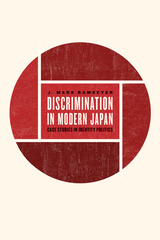
In this book, J. Mark Ramseyer, a noted authority on Japan looks at discrimination against groups in Japanese society, focusing on the Korean, Okinawan, and Burakumin groups. Ramseyer asks why they experience discrimination in Japan, an unusually homogeneous society. Is it because of some prejudice on the part of the majority that prevents their integration into mainstream Japanese society? Or is it because some of the dynamics within the group create incentives for the group to stay together and to be on the fringes of society?
Ramseyer argues that the real explanation is the latter, and each of these three groups has been victimized by its own leadership. Precisely because the groups are dysfunctional, members of the group cannot control members who would appoint themselves group leaders. The result has been the capture of leadership positions by people who manipulate the group to their own private advantage and to the detriment of the group as a whole.
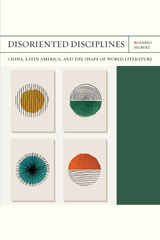
In the absence of specialized programs of study, abstract discussions of China in Latin America took shape in contingent critical infrastructures built at the crossroads of the literary market, cultural diplomacy, and commerce. As Rosario Hubert reveals, modernism flourishes comparatively, in contexts where cultural criticism is a creative and cosmopolitan practice.
Disoriented Disciplines: China, Latin America, and the Shape of World Literature understands translation as a material act of transfer, decentering the authority of the text and connecting seemingly untranslatable cultural traditions. In this book, chinoiserie, “coolie” testimonies, Maoist prints, visual poetry, and Cold War memoirs compose a massive archive of primary sources that cannot be read or deciphered with the conventional tools of literary criticism. As Hubert demonstrates, even canonical Latin American authors, including Jorge Luis Borges, Octavio Paz, and Haroldo de Campos, write about China from the edges of philology, mediating the concrete as well as the sensorial.
Advocating for indiscipline as a core method of comparative literary studies, Disoriented Disciplines challenges us to interrogate the traditional contours of the archives and approaches that define the geopolitics of knowledge.

States are inherently and fundamentally geographical. Sovereignty is based on control of territory. This book uses Song China to explain how a pre-industrial regime organized itself spatially in order to exercise authority. On more than a thousand occasions, the Song court founded, abolished, promoted, demoted, and reordered jurisdictions in an attempt to maximize the effectiveness of limited resources in a climate of shifting priorities, to placate competing constituencies, and to address military and economic crises. Spatial transformations in the Song field administration changed the geography of commerce, taxation, revenue accumulation, warfare, foreign relations, and social organization, and even determined the terms of debates about imperial power.
The chronology of tenth-century imperial consolidation, eleventh-century political reform, and twelfth-century localism traced in this book is a familiar one. But by detailing the relationship between the court and local administration, this book complicates the received paradigm of Song centralization and decentralization. Song frontier policies formed a coherent imperial approach to administering peripheral regions with inaccessible resources and limited infrastructure. And the well-known events of the Song—wars and reforms—were often responses to long-term spatial and demographic change.
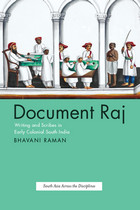

and pictorial representations, The Double Screen shows how the
collaboration and tension between material form and image gives life to
a painting. A Chinese painting is often reduced to the image it bears;
its material form is dismissed; its intimate connection with social
activities and cultural conventions neglected.
A screen occupies a space and divides it, supplies an ideal surface for
painting, and has been a favorite pictorial image in Chinese art since
antiquity. Wu Hung undertakes a comprehensive analysis of the screen,
which can be an object, an art medium, a pictorial motif, or all three
at once. With its diverse roles, the screen has provided Chinese
painters with endless opportunities to reinvent their art.
The Double Screen provides a powerful non-Western perspective on
issues from portraiture and pictorial narrative to voyeurism,
masquerade, and political rhetoric. It will be invaluable to anyone
interested in the history of art and Asian studies.
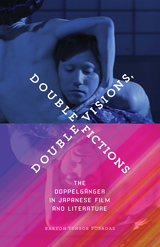
A fresh take on the dopplegänger and its place in Japanese film and literature—past and present
Since its earliest known use in German Romanticism in the late 1700s, the word Doppelgänger (double-walker) can be found throughout a vast array of literature, culture, and media. This motif of doubling can also be seen traversing historical and cultural boundaries. Double Visions, Double Fictions analyzes the myriad manifestations of the doppelgänger in Japanese literary and cinematic texts at two historical junctures: the interwar period of the 1920s and 1930s and the present day.
According to author Baryon Tensor Posadas, the doppelgänger marks the intersection of the historical impact of psychoanalytic theory, the genre of detective fiction in Japan, early Japanese cinema, and the cultural production of Japanese colonialism. He examines the doppelgänger’s appearance in the works of Edogawa Rampo, Tanizaki Jun’ichiro, and Akutagawa Ryunosuke, as well as the films of Tsukamoto Shin’ya and Kurosawa Kiyoshi, not only as a recurrent motif but also as a critical practice of concepts. Following these explorations, Posadas asks: What were the social, political, and material conditions that mobilized the desire for the doppelgänger? And how does the dopplegänger capture social transformations taking place at these historical moments?
Double Visions, Double Fictions ultimately reveals how the doppelgänger motif provides a fascinating new backdrop for understanding the enmeshment of past and present.
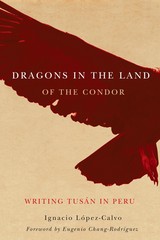
While authors like Siu Kam Wen and Julia Wong often rely on their Chinese cultural heritage for inspiration, many others, like Pedro Zulen, Mario Wong, and Julio Villanueva Chang, choose other sources of inspiration and identification. López-Calvo studies the different strategies used by these writers to claim either their belonging in the Peruvian national project or their difference as a minority ethnic group within Peru. Whether defending the rights of indigenous Peruvians, revealing the intricacies of a life of self-exploitation among Chinese shopkeepers, exploring their identitarian dilemmas, or re-creating—beyond racial memory—life under the political violence in Lima of the 1980s, these authors provide their community with a voice and a collective agency, while concomitantly repositioning contemporary Peruvian culture as transnational.
López-Calvo bridges from his earlier study of Peruvian Nikkei’s testimonials and literature and raises this question: why are Chinese Peruvian authors seemingly more disconnected from their Asian heritage than Japanese Peruvian authors from theirs? The author argues that the Chinese arrival in Peru half a century earlier influenced a stronger identification with the criollo world. Yet he argues that this situation may soon be changing as the new geopolitical and economic influence of the People’s Republic of China in the world, particularly in Latin America and the Caribbean, affects the way Chinese and Sino–Latin American communities and their cultures are produced and perceived.
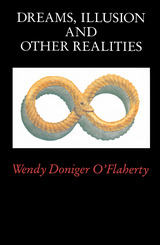
"Dazzling analysis. . . . The book is firm and convincing once you appreciate its central point, which is that in traditional Hindu thought the dream isn't an accident or byway of experience, but rather the locus of epistemology. In its willful confusion of categories, its teasing readiness to blur the line between the imagined and the real, the dream actually embodies the whole problem of knowledge. . . . [O'Flaherty] wants to make your mental flesh creep, and she succeeds."—Mark Caldwell, Village Voice

What drives literary change? Does literature merely follow shifts in a culture, or does it play a distinctive role in shaping emergent trends? Michael Fuller explores these questions while examining the changes in Chinese shi poetry from the late Northern Song dynasty (960–1127) to the end of the Southern Song (1127–1279), a period of profound social and cultural transformation.
Shi poetry written in response to events was the dominant literary genre in Song dynasty China, serving as a central form through which literati explored meaning in their encounters with the world. By the late Northern Song, however, old models for meaning were proving inadequate, and Daoxue (Neo-Confucianism) provided an increasingly attractive new ground for understanding the self and the world. Drifting among Rivers and Lakes traces the intertwining of the practice of poetry, writings on poetics, and the debates about Daoxue that led to the cultural synthesis of the final years of the Southern Song and set the pattern for Chinese society for the next six centuries. Examining the writings of major poets and Confucian thinkers of the period, Fuller discovers the slow evolution of a complementarity between poetry and Daoxue in which neither discourse was self-sufficient.

Often considered China’s greatest poet, Du Fu (712–770) came of age at the height of the Tang dynasty, in an era marked by confidence that the accumulated wisdom of the precedent cultural tradition would guarantee civilization’s continued stability and prosperity. When his society collapsed into civil war in 755, however, he began to question contemporary assumptions about the role that tradition should play in making sense of experience and defining human flourishing.
In this book, Lucas Bender argues that Du Fu’s reconsideration of the nature and importance of tradition has played a pivotal role in the transformation of Chinese poetic understanding over the last millennium. In reimagining his relationship to tradition, Du Fu anticipated important philosophical transitions from the late-medieval into the early-modern period and laid the template for a new and perduring paradigm of poetry’s relationship to ethics. He also looked forward to the transformations his own poetry would undergo as it was elevated to the pinnacle of the Chinese poetic pantheon.

The Dumbarton Oaks Anthology of Chinese Garden Literature is the first comprehensive collection in English of over two millennia of Chinese writing about gardens and landscape. Its contents range from early poems using plant imagery to represent virtue and vice, through works from many dynasties on both private and imperial gardens, to twentieth-century prose descriptions of the reconstruction of a historic Suzhou garden. Most passages have been translated for this publication. A number of previously published translations, some of which are now hard to find, are also included.
The anthology is divided into nine chapters: five chronological, covering the pre-Qin period to the Qing dynasty; and four thematic, on rocks and flora, the evolution of a single site (Canglang Pavilion in Suzhou), gardens of the mind, and the interplay between garden and landscape as seen through Mount Tai and West Lake. An introductory essay positions Chinese gardens and garden literature in their cultural context. Care has been taken to translate plant names as accurately as possible given the limitations of the sources, and the anthology includes a glossary of translated names, Chinese names, and binomials.
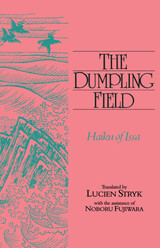
Koyashi Issa (1763–1827), long considered amoung Japan’s four greatest haiku poets (along with Basho, Buson, and Shiki) is probably the best loved. This collection of more than 360 haiku, arranged seasonally and many rendered into English for the first time, attempts to reveal the full range of the poet’s extraordinary life as if it were concentrated within a year. Issa’s haiku are traditionally structured, of seventeen syllables in the original, tonally unified and highly suggestive, yet they differ from those of fellow haikuists in a few important respects. Given his character, they had to. The poet never tries to hide his feelings, and again and again we find him grieving over the lot of the unfortunate – of any and all species.
No poet, of any time or culture, feels greater compassion for his life of creatures. No Buddhist-Issa was to become a monk—acts out the credos of his faith more genuinely. The poet, a devoted follower of Basho, traveled throughout the country, often doing the most menial work, seeking spiritual companionship and inspiration for the thousands of haiku he was to write. Yet his emotional and creative life was centered in his native place, Kashiwabara in the province of Shinano (now Nagano Prefecture), and his severest pain was the result of being denied a place in his dead father’s house by his stepmother and half brother.
By the time he was able to share the house of his beloved father, Issa had experienced more than most the grief of living, and much more was to follow with the death of his wife and their four children. In the face of all he continued to write, celebrating passionately the lives of all that shared the world with him, all creatures, all humans. Small wonder that Issa is so greatly loved by his fellow poets throughout the world, and by poetry lovers of all ages.

The importance of the rich corpus of “Masters Literature” that developed in early China since the fifth century BCE has long been recognized. But just what are these texts? Scholars have often approached them as philosophy, but these writings have also been studied as literature, history, and anthropological, religious, and paleographic records. How should we translate these texts for our times?
This book explores these questions through close readings of seven examples of Masters Literature and asks what proponents of a “Chinese philosophy” gained by creating a Chinese equivalent of philosophy and what we might gain by approaching these texts through other disciplines, questions, and concerns. What happens when we remove the accrued disciplinary and conceptual baggage from the Masters Texts? What neglected problems, concepts, and strategies come to light? And can those concepts and strategies help us see the history of philosophy in a different light and engender new approaches to philosophical and intellectual inquiry? By historicizing the notion of Chinese philosophy, we can, the author contends, answer not only the question of whether there is a Chinese philosophy but also the more interesting question of the future of philosophical thought around the world.

This volume addresses cultural and literary transformation in the late Ming (1550-1644) and late Qing (1851-1911) eras. Although conventionally associated with a devastating sociopolitical crisis, each of these periods was also a time when Chinese culture was rejuvenated. Focusing on the twin themes of crisis and innovation, the seventeen chapters in this book aim to illuminate the late Ming and late Qing as eras of literary-cultural innovation during periods of imperial disintegration; to analyze linkages between the two periods and the radical heritage they bequeathed to the modern imagination; and to rethink the "premodernity" of the late Ming and late Qing in the context of the end of the age of modernism.
The chapters touch on a remarkably wide spectrum of works, some never before discussed in English, such as poetry, drama, full-length novels, short stories, tanci narratives, newspaper articles, miscellanies, sketches, familiar essays, and public and private historical accounts. More important, they intersect on issues ranging from testimony about dynastic decline to the negotiation of authorial subjectivity, from the introduction of cultural technology to the renewal of literary convention.
READERS
Browse our collection.
PUBLISHERS
See BiblioVault's publisher services.
STUDENT SERVICES
Files for college accessibility offices.
UChicago Accessibility Resources
home | accessibility | search | about | contact us
BiblioVault ® 2001 - 2024
The University of Chicago Press









